Who was Gerhard Adler?
 Gerhard Adler (1904-1988) was a distinguished Jungian analyst and a prominent figure in the field of analytical psychology. His work as a clinician, scholar, and teacher significantly shaped the development of Jungian theory and practice in the 20th century. Adler’s contributions spanned the realms of analytical psychology, psychoanalytic theory, and the interpretation of religious and mythological symbols. His extensive publications and his role in the training of future analysts have left a lasting impact on the field.
Gerhard Adler (1904-1988) was a distinguished Jungian analyst and a prominent figure in the field of analytical psychology. His work as a clinician, scholar, and teacher significantly shaped the development of Jungian theory and practice in the 20th century. Adler’s contributions spanned the realms of analytical psychology, psychoanalytic theory, and the interpretation of religious and mythological symbols. His extensive publications and his role in the training of future analysts have left a lasting impact on the field.
Early Life and Education
Background and Education
Gerhard Adler was born on December 25, 1904, in Berlin, Germany. He pursued his initial education at the University of Berlin, where he studied medicine. His academic journey began with a strong foundation in the sciences, which was later complemented by a deep engagement with the humanities. Adler’s medical education was marked by a focus on understanding psychological phenomena, leading him to psychoanalysis and the study of Carl Jung’s work.
After completing his medical degree, Adler trained in psychiatry and psychoanalysis. He was significantly influenced by the work of Carl Jung, whose ideas on the collective unconscious, archetypes, and individuation shaped Adler’s own approach to psychological theory and practice.
Personal Life and Relationships Marriage and Family
Gerhard Adler married Hella Adler (née Koch) in 1937. Hella was also a Jungian analyst and scholar who made significant contributions to analytical psychology. Together, they had two children and maintained a close personal and professional partnership throughout their lives. Their shared passion for Jungian psychology and their collaborative work enriched both their personal relationship and their scholarly endeavors.
Friendship with Carl Jung
Adler developed a close friendship with Carl Jung over the years. Their relationship was characterized by mutual respect, intellectual exchange, and a shared commitment to the development of analytical psychology. Adler’s friendship with Jung provided him with unique insights into the foundations of Jungian theory and helped shape his own contributions to the field.
Relationship with Analytical Psychology
Early Engagement with Jungian Theory
Adler’s relationship with Jungian analytical psychology began in the 1930s, when he was introduced to Jung’s ideas through his readings and professional encounters. Adler was captivated by Jung’s concepts of the collective unconscious and the archetypes, which provided a framework for understanding both individual and collective psychological experiences. He became an ardent proponent of Jungian psychology, integrating these concepts into his own clinical practice and theoretical work.
Contributions to Jungian Analytical Psychology
Adler’s contributions to analytical psychology were multifaceted. He was a founding member of the Analytical Psychology Club in Berlin and later played a crucial role in the establishment of the Society of Analytical Psychology in London. His clinical work and scholarly writings helped to establish and expand the practice of Jungian analysis.
Teaching and Training
Adler was also a dedicated teacher and supervisor, training a new generation of Jungian analysts. His teaching emphasized the importance of integrating theoretical knowledge with clinical practice. Adler’s role as an educator helped to disseminate Jungian ideas and foster a new generation of analysts who would continue to develop and expand Jungian theory.
Key Ideas and Contributions
The Concept of the Self
One of Adler’s significant contributions to Jungian theory was his exploration of the concept of the self. Adler expanded upon Jung’s ideas by focusing on the self as a dynamic, evolving entity. He emphasized the importance of understanding the self as it develops through various stages of life and the role of the self in the process of individuation.
The Self and Its Development
Adler’s work on the self involved a detailed examination of how the self evolves from childhood to adulthood. He explored how early experiences shape the self and how the self continues to develop throughout life. Adler’s approach highlighted the importance of understanding the self as a central component of psychological growth and therapeutic practice.
Archetypes and Symbols
Adler made significant contributions to the understanding of archetypes and symbols in Jungian psychology. He explored how archetypes manifest in the collective unconscious and how they influence individual psychological experiences. Adler’s work emphasized the role of symbols in expressing unconscious processes and facilitating the therapeutic journey.
The Role of Symbols in Therapy
Adler’s exploration of symbols included a focus on their therapeutic potential. He examined how symbols could be used to access unconscious content and facilitate psychological healing. His work highlighted the importance of working with symbols in therapy to uncover and integrate unconscious material.
Mythology and Religion
Adler was deeply interested in the role of mythology and religion in psychological life. He examined how religious symbols and mythological narratives shape individual and collective experiences. Adler’s work in this area explored the psychological significance of religious symbols and the ways in which they reflect and influence the unconscious mind.
The Psychological Significance of Myths
Adler’s exploration of mythology and religion involved analyzing how myths reflect universal psychological themes and processes. He examined how mythological narratives could be used to understand psychological phenomena and support therapeutic practice.
Clinical Practice
Adler’s clinical practice was marked by a commitment to integrating Jungian theory with practical therapeutic techniques. He developed approaches for working with clients that incorporated his theoretical insights into the nature of the self, archetypes, and symbols. Adler’s clinical work was characterized by a thoughtful and nuanced approach to understanding and addressing psychological issues.
Contributions to Clinical Techniques
Adler’s clinical practice involved developing techniques for working with clients that were informed by his theoretical work. He explored methods for engaging with unconscious material, working with symbols, and facilitating psychological growth. His contributions to clinical techniques helped to refine and expand the practice of Jungian analysis.
Major Works and Publications
Publications and Scholarly Contributions
Adler’s scholarly work includes a range of publications that reflect his contributions to Jungian theory and practice. His writings cover topics such as the self, archetypes, symbols, and the psychological significance of mythology and religion. Adler’s publications have been influential in shaping the development of Jungian psychology.
Selected Publications and Timeline
- 1935 – The Structure of the Psyche
Adler’s early work focused on the foundational concepts of Jungian psychology, exploring the structure of the psyche and its components. - 1951 – The Self in Psychotherapy
This work delves into the nature of the self and its role in the therapeutic process. Adler explores how the self develops and how it can be understood and addressed in therapy. - 1960 – Symbol and Transformation
In this book, Adler examines the role of symbols in psychological processes and their significance for therapeutic work. - 1970 – Mythology and the Psychology of the Unconscious
Adler explores the connections between mythology and the unconscious mind, offering insights into how mythological symbols reflect psychological themes. - 1984 – Archetypes and the Collective Unconscious
This work builds on Jung’s ideas to further explore archetypes and their role in the collective unconscious. - 1986 – The Therapeutic Use of Symbols
Adler’s later work focuses on the practical application of symbols in therapy, offering techniques and approaches for using symbols in clinical practice.
Influence and Legacy
Gerhard Adler’s influence on the field of analytical psychology is profound. His contributions to Jungian theory, particularly his work on the self, archetypes, and symbols, have had a lasting impact on both theoretical and clinical aspects of psychology. Adler’s scholarly publications and his role as a teacher and supervisor helped to establish and develop Jungian analysis as a significant psychological discipline.
Adler’s work continues to be relevant in contemporary Jungian psychology, with his theories informing current practices and research. His exploration of the self, symbols, and mythology has left a rich legacy that continues to inspire and guide analysts, researchers, and students of Jungian psychology.
-
Influence on Contemporary Jungian Analysts Mentorship and Supervision
Adler’s influence extended beyond his own writings and clinical work. As a mentor and supervisor, he played a crucial role in the development of many contemporary Jungian analysts. His guidance and support helped shape the careers of numerous practitioners who have gone on to make significant contributions to the field of analytical psychology.
Legacy in Contemporary Jungian Practice
Adler’s ideas continue to resonate in contemporary Jungian practice. His emphasis on the self, symbols, and the integration of theoretical and clinical perspectives remains central to the work of many Jungian analysts today. Adler’s legacy can be seen in the ongoing exploration of these themes in both research and clinical settings.
Interdisciplinary Influence Impact on Other Fields
While Adler’s primary focus was on analytical psychology, his ideas have had an impact on other disciplines as well. His work on symbols, mythology, and the unconscious has influenced scholars in fields such as anthropology, religious studies, and literary criticism. Adler’s interdisciplinary approach has helped to foster dialogue and exchange between analytical psychology and other areas of study.
Contributions to the Humanities
Adler’s engagement with themes of mythology, religion, and symbolism has made a significant contribution to the broader field of the humanities. His work has helped to deepen our understanding of how these cultural and psychological phenomena shape human experience and meaning-making. Adler’s ideas continue to inspire and inform scholars working at the intersection of psychology, culture, and the humanities.
Read More Depth Psychology Articles:
Taproot Therapy Collective Podcast
Jungian Innovators
Gerhard Adler’s Publications
- Adler, Gerhard. The Structure of the Psyche. Berlin: Psychosozial-Verlag, 1935.
- An exploration of the foundational concepts of Jungian psychology, focusing on the structure of the psyche.
- Adler, Gerhard. The Self in Psychotherapy. London: Routledge, 1951.
- A detailed examination of the self and its role in therapeutic practice.
- Adler, Gerhard. Symbol and Transformation. London: Routledge, 1960.
- Adler’s analysis of the role of symbols in psychological processes and therapy.
- Adler, Gerhard. Mythology and the Psychology of the Unconscious. London: Karnac Books, 1970.
- A study of the connections between mythology and the unconscious mind.
- Adler, Gerhard. Archetypes and the Collective Unconscious. London: Routledge, 1984.
- An exploration of archetypes and their manifestations in the collective unconscious.
- Adler, Gerhard. The Therapeutic Use of Symbols. London: Routledge, 1986.
- A guide to the practical application of symbols in psychotherapy.
Books and Articles on Gerhard Adler’s Work
- Samuels, Andrew, Bani Shorter, and Fred Plaut. A Critical Dictionary of Jungian Analysis. London: Routledge, 1986.
- A comprehensive reference work that includes entries on Gerhard Adler and his contributions to Jungian psychology.
- Kirsch, Thomas B. The Jungians: A Comparative and Historical Perspective. London: Routledge, 2000.
- An overview of major figures in Jungian psychology, including Gerhard Adler, with a focus on historical development and comparative analysis.
- Shamdasani, Sonu. Jung Stripped Bare by His Biographers, Even. London: Karnac Books, 2004.
- A critical examination of Carl Jung’s life and work, providing context for Adler’s contributions to Jungian psychology.
Books and Articles on Jungian Analytical Psychology
- Jung, Carl G. Psychological Aspects of the Persona. In Collected Works of C.G. Jung, Vol. 7. Princeton University Press, 1953.
- A foundational text on the concept of the persona and other psychological aspects relevant to Adler’s work.
- Jung, Carl G. The Archetypes and the Collective Unconscious. In Collected Works of C.G. Jung, Vol. 9 (Part 1). Princeton University Press, 1959.
- Jung’s seminal work on archetypes and the collective unconscious, central to Adler’s theoretical framework.
- Jung, Carl G. Man and His Symbols. London: Aldus Books, 1964.
- A key text on the role of symbols in psychology, exploring concepts that Adler expanded upon in his own work.
- von Franz, Marie-Louise. The Interpretation of Fairy Tales. Boston: Shambhala, 1970.
- An exploration of archetypal symbols in fairy tales, which complements Adler’s work on symbols and the unconscious.
- Hollis, James. Jung and the Post-Jungians. London: Routledge, 1991.
- A discussion of Jungian theory and its evolution, including insights into the contributions of analysts like Adler.
Historical and Contextual Studies
- Harris, Robert A. The Jungian Tradition. New York: Routledge, 2015.
- A contemporary overview of Jungian psychology that situates Adler’s contributions within the broader tradition.
- Stevens, Anthony. Jung: A Very Short Introduction. Oxford: Oxford University Press, 2013.
- A concise introduction to Jungian psychology, offering a foundation for understanding Adler’s work.
- Fordham, Michael. The Self and Autism. London: Karnac Books, 1976.
- A related work that explores concepts of the self and psychological development, relevant to understanding Adler’s theories.
Articles on Gerhard Adler’s Influence
- Gergen, Kenneth J. “Social Construction and the Psychology of the Self.” Journal of Analytical Psychology 38, no. 3 (1993): 273-290.
- An article discussing broader psychological theories that intersect with Adler’s work on the self and collective unconscious.
- Samuels, Andrew. “The Use of the Self in Jungian Analysis.” The Journal of Analytical Psychology 43, no. 2 (1998): 253-268.
- An article on the therapeutic use of the self, relevant to Adler’s clinical approaches.
- Brown, Susan. “The Role of Archetypes in Clinical Practice.” International Journal of Jungian Studies 12, no. 1 (2005): 45-62.
- A discussion on the application of archetypes in therapy, extending Adler’s ideas on symbols and the collective unconscious.
Biographical Sources
- McGuire, William, and R.F.C. Hull, eds. The Freud-Jung Letters: The Correspondence Between Sigmund Freud and C.G. Jung. Princeton University Press, 1974.
- Provides context for the early psychoanalytic environment in which Adler developed his ideas.
- Yankee, William. The Jungian Tradition: An Introduction. London: Routledge, 2010.
- An introduction to the history and development of Jungian psychology, with background information relevant to understanding Adler’s place in the tradition.
Online Resources
- International Association for Analytical Psychology (IAAP). IAAP Official Website.
- IAAP Website – Offers resources and information about Jungian psychology, including historical and contemporary figures like Gerhard Adler.
- Jungian Psychology Website – Jungian Psychology Resource
- A resource for information on Jungian psychological concepts and influential figures in the field.

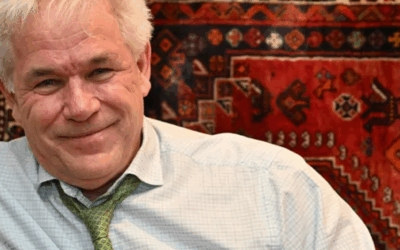
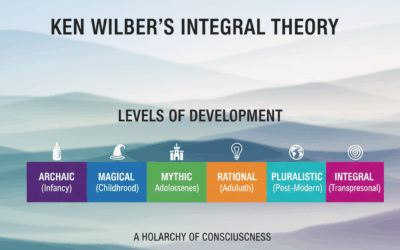










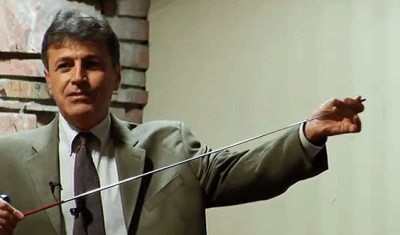

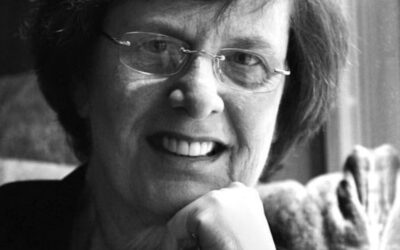




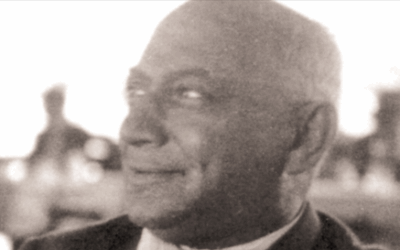


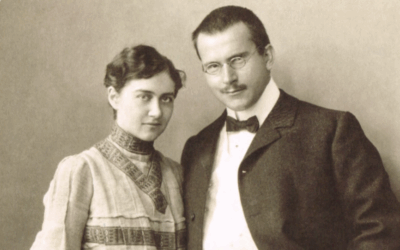
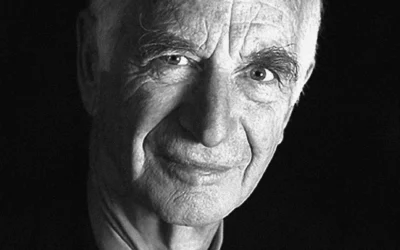
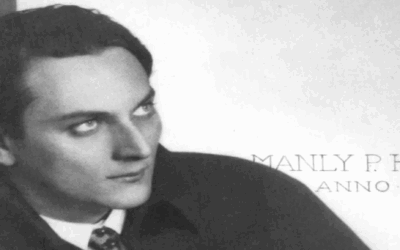
0 Comments